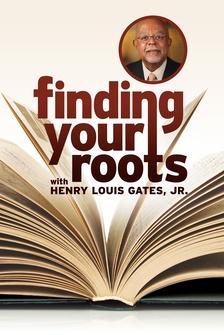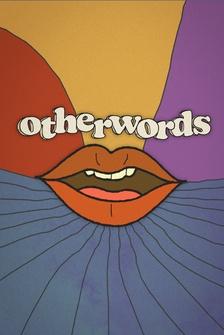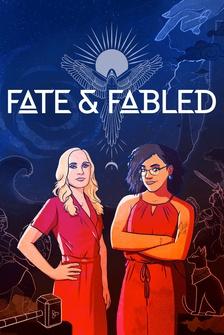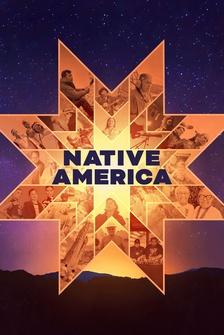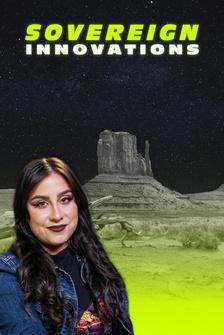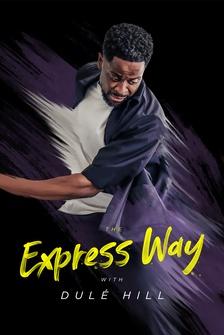[♪♪♪] -♪ Every day every day Every day ♪ ♪ Every day I write the book ♪ [♪♪♪] -Welcome, I'm Rose Martin, and we are Write Around The Corner in Roanoke with New York Times best-selling author and multiple award winner, Beth Macy.
You may recognize Beth's name from her books, Truevine and Factory Man or her groundbreaking work, Dopesick , and the Hulu series that followed.
But we're here because Beth has a follow-up, a gripping story called Raising Lazarus, about everyday heroes who are fighting addiction in communities across the country, and an individual struggling for accountability in America's courts.
Beth, thank you for bringing another great book to us.
-Thank you.
Thanks for having me back on the show.
-Oh, we're - it's so great for us.
For people who haven't had a chance to get to know you and a little bit about your background, you're an Ohio girl, a small-town Ohio girl from Urbana.
-Yes, from a small town called Urbana - great place to grow up.
I was the first person in my family to go to college.
I went to Bowling Green.
I got a journalism degree.
I worked in Ohio; then I worked in Savannah, Georgia.
And I came here in 1989 for just a few years, and I'm still here.
I worked at the Roanoke Times for 25 years but quit in '14 to start writing books full-time.
-And Dopesick really took off.
But I've got to ask you from Truevine and Factory Man are very different stories, what drew you to the opioid crisis and wanting to become a champion to help people in this?
-Well, I should say I'm from a family that struggled with addiction going back at least four generations.
It's not my favorite topic; it hurts me.
But this was an issue that I saw just getting worse and worse and worse.
I first wrote about it in 2012; I did a three-part series on heroin.
We then called it 'the heroin crisis'; now we call it 'the overdose crisis' because it's more than just heroin.
It's fentanyl largely now; of course, it started off with OxyContin.
And I did this three-part series in 2012 to kind of put the community on alert that it was a really bad problem in Hidden Valley, which is one of the wealthiest suburbs in Roanoke County.
And then, after I wrote the first two books, I circled back and was able to turn some of my original reporting I had done for the Roanoke Times, expand upon it, and do a much more thorough job of telling how the crisis had evolved since then.
And so, the new book is really a follow-up.
When I finished Dopesick , my main person that I'd been following - a young woman named Tess Henry, who really struggled, was brutally murdered.
Her body was found in a dumpster on Christmas Eve, and that was after I had finished and edited the book.
And then I had to go back and rewrite the ending.
And I was very close to her mother by that point, and I was really kind of struggling.
Just, it was so, I was actually sitting right on that couch when I got the call.
It was the day after Christmas.
And I was depressed, to be honest, and I thought I never want to write about this again.
And then, as I went around the country talking about the book and seeing how important the message was still to get across, I mean, even when the show came out last year, people still don't know how it went down, how we came to be in the worst drug epidemic in our history, and how the pharmaceutical companies started this, and they still haven't been really held to account.
People still don't know that.
And what they really don't know is that there are really cool people out there doing amazing things at the ragged edge of capacity to help the least of us get better.
And so, as I was traveling around, I started to hear good things too and I thought, well, maybe I do have another book about this topic in me.
And, you know, it's-- so Mr. Rogers told us to find the helpers.
And I did that with Dopesick ; I wrote about Dr. Van Zee and Sister Beth and all these cool women mainly, who were like trying to help people access treatment - didn't always work, but they were trying.
And so, that's what I did in this book.
I found people who are really doing cutting edge stuff in the most unlikely places, and I tried to bring them to life.
-So, the title brings it-- now you say this 'bringing them to life.'
So, Raising Lazarus , how did you settle on that as a title?
-Yes, I thought of it as The Fix .
That's what the proposal said.
That's what we called it for the first eight months that I was writing on it.
I always renamed the title with a date every day that I'm working on the book.
-Oh, really?
-Yes, just so I'll have various versions in case I want to go back to something a few days before or whatever.
But my editor said, uh, we need a better title.
There was another book already called The Fix that came out in '98, that was a really good book actually.
And she said, how about this Lazarus metaphor, and I'm not a particularly religious person; she is.
And then, it really fit with the story of the harm reductionist I was following.
In fact, one of my main characters in this book is a woman who leads the nation's only queer, biracial, faith-based harm reduction group out of Hickory, North Carolina.
And she tells the story of Lazarus when she's talking to community groups, to try to get religious people who are looking down at drug users to check their blind spots, and she will tell them.
well, Jesus did the miracle of bringing Lazarus back to life, but it was the disciples who had to roll the stone away and bring him out.
And then, they had to unbind him from the burial cloth.
And she said working with people who have this illness is messy and dirty; you might get a little yuck on you.
But when you're working with them, that's when the real miracles happen, and you get to experience that miracle.
And she's right.
I saw the miracles happen over and over with these folks, and it was just like, I get goosebumps just thinking about some of the things I saw, because it was just so groundbreaking and totally unexpected.
-Well, and that is a great metaphor, because you envision yourself thinking, oh, I just witnessed a miracle of healing, am I willing to touch and go further?
And that's the same thing - am I willing to touch?
Am I willing to get in that community?
-And am I willing to let an addicted person ride in my car to get to life-saving treatment?
There's a scene, early on in the book, where they've called together a really well-meaning bunch of church volunteers to help ferry people to treatment in this rural community in Surry County, North Carolina.
And the meeting gets hijacked by a woman who's afraid, basically.
I find out later that she has addiction in her family, and she just doesn't understand it.
And she says, look, I think when they overdose, we should let them die and take their organs.
And really, that comment brought the meeting to a halt.
Now what happened in that community is the person who was running that meeting didn't let that stop him, he went out and got a grant for a-- so, I have this line in there that people said they were religious, but few people wanted the body of Lazarus in their car with them.
And then, eventually, and this is the cool thing about writing longform journalism is you get to see things change.
Over the course of two years, they now have not a volunteer but an actual grant-funded transportation network.
They have like five or six drivers, ferrying people to treatment.
They were just sure that people were going to use it as a concierge service, but nobody took advantage.
Everybody was polite.
Nobody overdosed in the car.
And, you know, the world didn't end.
They treated people with respect and humanity, and the world didn't end.
And, you know, when they see, like when people start to do things differently, when bureaucracies start to do things differently, when healthcare providers start to do things differently, they see that the world doesn't end, that they aren't bad people, they get really excited about their job.
And then, they start telling other people and there are jobs elsewhere.
And that's another kind of stone-rolling moment in the book, where I tell the story of the Head of the Emergency Department of Carilion.
I interviewed him in 2017 for Dopesick .
He said, I don't believe in buprenorphine, that's not our job.
We don't need to be giving that at the ER, when I had seen Tess go to the ER numerous times and never be treated for addiction, only for her wound or her overdose or whatever.
Now, he is doing cutting-edge buprenorphine in the ER and when you say Dr. Burton has that appeal, you're potentially just saving 50 lives this month alone.
You got people into treatment that had never been in treatment.
He feels like, you know, he hung the moon.
He feels great.
And he's now teaching other ED directors how to do that.
And it's just like shifting people's, they call it the Overton window, this thinking that, oh, we can do this.
This isn't just bad, you know, and if we don't do it, it's going to come and bite us on the rear.
It really is, because there's no family, no neighborhood; just about no family that hasn't been touched by this somehow.
-I agree.
And when I was talking to my husband in Texas and with people at work about it and I'm like, you know, I read that and at first, I thought, well, sure.
I mean, our family and other families, there's someone in our neighborhoods or in our lives or in our own families, we have been touched by it.
And then, when I was reading your book, I was struck by how you didn't just write this book by calling people on the phone, or by getting emails, or by reading other books.
You went out there and you shadowed people, and you sat with them in cars, and you were really a party to the thing to see firsthand.
How did that change you from what you knew about dope-sick and the pain you went through with Tess and her mom, but to see that this many years later, we're still kind of dealing with the same things?
Is that what kind of brought it to the fact that I need to tell this story in a way that people can see what's really going on.
-Yes, and it's my responsibility because who else, like honestly, I've been writing about it off and on for ten years now.
I don't want to say I know more about it than anybody, but I have this unique window into this world.
I have sources all over the country.
I'm willing to spend the time to get somebody to trust me, and that's the biggest thing.
The book starts out in a McDonald's parking lot in Hickory, North Carolina, where a nurse practitioner, as a volunteer at night, is meeting a new patient who shows up late, high, super upset, because he knows he's going to die if he doesn't get off the needle.
And so, Tim, the nurse practitioner, says, I'm going to give you this prescription, buprenorphine.
I'm going to call it in at a discount price, but I want you to come away from this meeting with two notions - one is, you can get better because he didn't think he could.
He had never been offered this kind of treatment before.
Most Americans don't think folks with OUD can get better.
And two, and this is the key, don't disappear.
So, even if you start this medicine and then you relapse within the next week, text me and I'll meet you back here next week.
If you lose your car, or you lose your house and you're living in a tent, I'll meet you there.
And it's this idea of harm reduction, of meeting people where they are that's the critical piece.
So many people have been made to feel less than and stigmatized by hospitals, by doctors, by bureaucracies, by law enforcement, that they don't even want to try.
And they don't think it's possible, so why would they try, and they don't feel really they're worthy of it.
And so, this idea that they've got to start to feel a little bit of success before they have skin in the game, and then they actually can get better.
-And I love the line you have in there - harm reduction does not mean harm eradication.
-Yes.
-So, you're telling everybody, like stay with it, right.
And I followed the stories of the characters in your book, and I'm cheering for them and I'm waiting to see what happens, and the reality is, some of them do fall back.
And you very poignantly tell their story in a way that lets us know that just because they might have a little bit of success, we can't give up and they can't give up.
-Right, right.
The average person with OUD, it takes them five years - I'm sorry, it takes them eight years and five to six treatment attempts to get one year of sobriety.
Now, if we would actually offer the treatment at a scale, I'm sure that would get better.
Other countries that make treatment easier to get have higher treatment rates, but we don't do that yet.
So, that's what we've got to work on.
And that's what I'm hoping people come away from this book.
-And it's very clear in there, and I was thinking about that.
And the other thing that got me, I was curious, because I'm reading Mount Airy, I'm reading Andy Mayberry, I'm seeing all of that, and what we have in our mind about this little town - that's like a sense of Americana really is troubled, like so many other small rural towns across America.
-I wrote about Mount Airy, there's a chapter in Factory Man called the Mount Airy Ploy.
So, it was very much one of those communities that was really ensconced in manufacturing, almost all the jobs went away.
And Mount Airy had another thing going for it, but also against it in terms of had a lot of pill mill doctors, and really high prescribing rate there because Purdue had targeted there.
And then, also I had this cultural ingrained notion that whether Mount Airy or Mayberry, we are wholesome.
And so, maybe not quite wanting to look at the problem, but it got better, you know.
And that's really cool as I was saying, to get to follow a community that starts off with, let them die and take their organs, to now they're doing some pretty cutting-edge things from.
-Yes, and that was - it really got to me to see, yes, they are, they're stepping ahead and they're telling people, you know, harm reduction and needle exchange programs, don't be afraid of helping people by looking at a new way because the drug is affecting people in a way that people weren't anticipating doing.
So, our responses and the way we're going to go into treatment and helping them also has to change from perceived notions of what we knew before.
-Right.
And they know that, like I love the story where I meet the woman in the traphouse, who's a longtime drug user and dealer.
She's been in and out of prison for years.
I see her; she's like kind of a leader in that community because she's trying to give people clean needles.
She gets arrested a couple of weeks later, and then at the jail, the cop who's arrested her numerous times, says, Billy, what are we going to do with you?
And she says, why don't you get me treatment, for once?
And because Mark's group, Mark Willis is the Opioid Response Director, now has peers who work with the cops, they decide to try something different, and Billy gets to go to treatment for the first time in her life, and she just celebrated one year of sobriety a couple of weeks ago.
-Oh, that's wonderful.
-Yes.
And that was because of Mark getting this program going, but also because one detective was willing to change the way he saw things.
Young guy who like had arrested tons of his classmates and bothered getting to know the people on the ground who were doing the work.
And he'd said, you know, I thought giving them clean needles, that's crazy.
Why?
Isn't that enabling their use?
But he said, when I saw how they get into people's homes and get them to trust them, that that's when the real connections and the trust happens, and that's when these moments of grace can happen.
Like the miracle with Lazarus.
So, to see somebody change their mind from like lock all of them up every time to a couple of times a month now, they give people the opportunity to get into treatment.
And, you know, I wouldn't be surprised if Billy becomes one of those people that is a helper herself, eventually.
She just got a job.
She's very excited.
I hear from her all the time.
-Well, and you mentioned trust a few times, and making relationships and creating entrusting relationships with people.
And you going in as a journalist to some of these communities and to meet some of these people, was that another step that you had to take in order to gain their trust so they knew that, you know, they could trust you with not only with their stories, but to know that nothing was going to be sensationalized, and you were just going to bring this topic to life for them?
-Yes, I spent a couple of months talking to Michelle on the phone before she would let me come down and see the way her needle exchange operated.
And, you know, I'm sure I sent her a copy of Dopesick .
I've had heard her speak and she was the only person working in harm reduction that said, we have to meet the naysayers where they are too, you know, and I just thought, this is a woman that really wants to build bridges.
I want to see how she does it.
So, I called her.
We talked on the phone several times, and then I finally get to go.
And her goal then was to have Tim out doing buprenorphine.
It's called low barrier or low threshold, that means treatment wherever the people are, out on the - it's called street medicine also.
But they hadn't been doing it yet.
And by the time I get down there, they had just started.
I thought, oh, now I have to get him to trust me.
How's that going to go?
And he's kind of this shy guy.
And I meet him at the needle exchange.
He goes, oh, I've read Factory Man and I've read all of your books.
And I was like, and we were in because he got it.
You know, he got that I was going to spend the time to get to the heart of it.
So, that was a lucky break because if he wouldn't have let me in, it would have been a totally different book, which is fine, it would have been something else but.
-Yes.
Well, when you say, you mentioned you got it, you know, they got it.
And I know when I read this, I had a little bit of a history lesson because I did not know, for instance, that doctors were prescribing, you know, cocaine and heroin for menstrual cramps.
I didn't know you could buy needles from the Sears Roebuck Catalogue.
So, this thing that people are thinking this is all brand new, it's not brand new.
-Yes, I tell the history of the war on drugs, which is, I tried to do it a few pages and then it went on and on because it's so complex, and yet it drives so much of how we respond.
We still respond, by and large in this country, to addiction by incarcerating people.
I mean, have they committed crimes?
Yes.
But have they been also preventively offered treatment?
No, they haven't, and until we do that, we're still.
that's going to be our de facto treatment.
And it's a shame.
-And you also capture and put us with a moment of what it's really like to be there.
And I'll share a quote with you, and it's, you know, one quote you said, "if I live to be a hundred, "I will never forget the image of Brooke Parker "sitting at the infected feet of a calmly weeping man, "while police officers went about the business of stapling up eviction notices."
No wonder, Beth, that's such a very, very powerful moment.
Those things are resonating for all of us, but imprinted on your mind, how do you continue to work in this field, Beth, when you've been so touched and so exposed, and so vulnerable and raw to so many things that are happening?
-Well, I don't really feel vulnerable when I'm out in the field, like that day, it was very hot.
It was Charleston, West Virginia.
I was with this Ryan White caseworker whose job it was to test people for HIV because they have the most concerning outbreak in the nation, and then get them into treatment.
But they move.
A lot of them are homeless, most of them are.
And by the time their test results come back, she can't find them.
So, we're going around these homeless encampments and we just, she was looking for somebody, a specific person to tell they had HIV and to try to help them.
But in the meantime, there's just this like ocean of need, and there's this man who had been picking maggots out of his feet earlier in the day.
He's in a wheelchair, he's at a homeless encampment.
And like she just had to stop and help him where she was.
And I just sat down on the dirt next to her, opening these little packets of triple antibiotic ointment.
And we had this really moving scene.
And while we were doing it, the police come in, evict the whole encampment, or put up a notice that it's going to happen in a few days.
And it would just seem like such a telling moment, you know.
And boy, I mean, Brooke - she's the hero.
She's the one making herself vulnerable every day, the people doing this work.
And she's up here also, so that means she's in recovery and has suffered from addiction.
And, you know, she very openly told me, she had been thinking about using drugs again because her job is so stressful.
So, we need to get help for these helpers because some of them are relapsing and dying.
-And that was the tragic part when following some of the characters in the story, and that was the reality of what was going to happen to them.
Like the one guy, I think his name was Charlie, who was clean, and he started a little bike shop in the house, and then he ends up getting evicted.
And I'm like, oh my gosh, look, the guy has a bike shop, you know.
You talk about the fact that nothing is as traumatic as poverty.
And that really, I was thinking about that - there are so many other layers that you have to deal with, with poverty.
And then, there was a part in the book where the people use the Chrome phone, and I'm like, I had never realized what that was.
And so, for our viewers, before we have you read a little bit of Raising Lazarus , what's a Chrome phone?
-So, the Chrome phone, and I don't know if it's in every jail but in the Surry County Jail, what they call the Chrome phone, is it's a way inmates talk to each other who are in different cells.
They take all the water out of the toilet, and they can, some of them, they just stoop down and talk to each other for hours.
And that was how one person got into treatment because another person at other adjacent cell gave Sonya, the peer recovery specialist's phone number, said the number through the Chrome phone, had it memorized because they had been childhood best friends.
And that was how this person ended up getting treatment.
So, the Chrome phone comes in handy.
Now, Mount Airy is building a bigger jail, which I don't necessarily think is the answer, but they're going to have treatment facilities in that jail.
So, I'm really happy about that.
So, I was able to see that positive change.
-I'm pleased that at the end of the book, you give people a list of what kinds of things can happen, because oftentimes, people will say, what do I do?
What's next?
And so, there's very practical tips that you're saying to people - you want to become active, you want to make change, we'll do it.
There's one more question though because you said in the book, you always have your magic wand question.
And you ask the magic wand question: What would it take to turn the overdose crisis around?
Do you have your own answer for your magic question?
-It is.
I mean, it's an eight-part question in my mind, but the overarching answer is, we have to make the treatments easier to access than the dope.
-Perfect.
Would you be willing to read?
-Sure.
-Something from Raising Lazarus , please.
-So, this is the part about Brooke.
This is a little bit of the part about Brooke.
This is the HIV Ryan White worker in Charleston.
"We spent most of the afternoon looking for Marie, "a 36-year-old sex worker who'd tested positive the week before.
"After several stops, we found her in an encampment "she shared with her father, near a truckstop at Econo Lodge.
"Marie wore thigh high boots, bright red lipstick, "and had Daddy's Little Girl tattooed on her forearm.
"Brooke talked to Marie and her dad for ten minutes "about their mutual friend, Camille, "who was currently in the hospital "for complications caused by a drug called Krokodil "that had eaten the flesh off her forearm.
"To shame Camille, "the 'Charleston Has Had Enough' Facebook group "posted a picture of her open wounds on its page.
"Marie seemed unmoved by the news of her HIV positive status "after Brooke delivered it privately behind a tree.
"Brooke volunteered to pick her up "the following week to get her viral load tested, "a precursor to starting her on HIV meds.
"'I'll come back Tuesday to remind you,' she said.
"By the time Tuesday rolled around, Brooke predicted, "Marie would have ditched and dodged, "which was exactly what transpired.
"'Marie is still MIA,' she texted me a week later.
"'I'm looking for her dad to do a test soon "as he had a needle stick injury from one of her points needles "and is worried.'
"At an encampment behind a nearby IHOP, "Brooke scanned the grounds for the remaining three "positives on her list, but her search came to a halt "when she spotted Kyle, a 45-year-old man "in a wheelchair who needed her immediate help.
"He'd picked maggots from his feet earlier in the day.
"Not only was Kyle in pain from the severe "injection-related infections on his lower legs and feet, "he was also dope-sick.
"Brooke texted a picture of his wounds "to a co-worker and physician's assistant "who confirmed that Kyle's infection wouldn't clear "without IV antibiotics.
"He needed to be admitted to the hospital.
"But when she offered to take him, he shook his head.
"He'd just spent 18 hours there in the ER "for the same infections the week earlier, "and they did nothing for me, he said.
"Brook sighed and apologized.
"Then she sighed some more as she squatted at Kyle's feet, "put on rubber gloves and spent the next half hour "applying packet after packet of triple antibiotic ointment "on his legs and feet.
"'Oh baby, I'm so sorry,' she said, every time he winced.
"He wept openly as a friend of his, "a woman in a short skirt with smeared red lipstick, "walked up and handed him a Pepsi.
"'That ointment ain't gonna cut it, honey,' she told Brooke.
"'I was an LPN for 17 years' - "Kyle's friend pauses for dramatic effect - "'and then I got married,' she said, "spreading her arms with the timing of a stand-up comedian, "'and hence a homeless hooker.'
"She squeezed Kyle's shoulder, "bowed dramatically as she took her leave and returned to her tent."
So just like, that little moment, like, so much drama, so much love, so much angst, just like I just had to give away and tell it in one scene.
And that was probably the most memorable day I spent reporting.
-Well, this has been memorable for us.
Thank you so much for joining us and sharing this book.
Special thanks to Beth Macy for inviting us here to her home in Roanoke, and for sharing Raising Lazarus with us.
It's a gripping story of the heroes, and what's going on really, for what we can all do to make a difference, and to shed light on this very important topic.
It's not over, and there's things that we can do.
Beth's got many, many wonderful st ories and quotes in this book.
Please pick up a copy and make a difference in your own communities.
Tell your friends about us and check out more of our interview online.
Until next time, I'm Rose Martin, and I'll see you Write Around the Corner.
-♪ Every day every day Ev ery day every day every day ♪ ♪ Every day I write the book ♪ ♪ Every day every day Every day ♪ ♪ Every day I write the book ♪ ♪ Every day every day Every day ♪ ♪ Every day I write the book ♪

